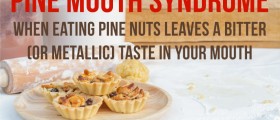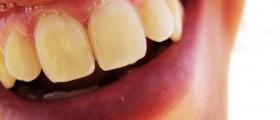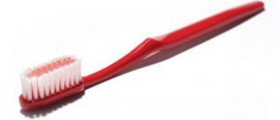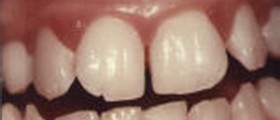
Common Causes of Metallic Taste in Mouth
Improper dental care or total dental neglect may lead to the appearance of many bacteria and other organisms, creating unhealthy environment in the mouth, thus producing the specific taste. The bacteria may be affecting teeth, gums, tongue or some other parts of the oral cavity. Also, tooth decay and abscess may all be additional causes of a metallic taste. Finally, gastric reflux may deliver stomach acid into the mouth, damaging the enamel on the teeth and bringing the specific sour, unpleasant taste.Numerous different types of medications may induce taste disturbance as a side effect. Women who are in periods of hormonal change and imbalance may experience metallic taste in mouth due to estrogen levels change. People who overindulge in alcohol or abuse drugs add on to the list of those developing this condition. Those who have been exposed to toxic elements like mercury, lead, copper or selenium, also tend to suffer from the same sensation.
Is Salty Taste Related to Metallic Taste?
There are people who taste something salty in their mouths and on their lips even though nothing is there nor have they eaten salty food beforehand. This condition can remain persistent and cause a lot of mental and physical frustration. This medical problem is always related to the mouth instead of the nose, contrary to the popular belief. One of the most common causes of this problem is dehydration.Medications prescribed when a person is fighting cancer or is going on radiotherapy are known to cause taste abnormalities, possibly resulting in salty mouth and lips. Sinus infections, allergies or any other conditions which involve excessive mucus production in the throat may all lead to the onset of salty taste in mouth. Sometimes the glands which produce the saliva get infected by bacteria or the chemical composition of one's saliva gets altered, both resulting in salty tasting in some cases.Poor dental and oral hygiene may lead to bacterial infections which affect a person's mouth as a whole. Cerebrospinal fluid leakage, brain and neurological disorders, malnutrition, epilepsy or brain tumors can all be considered as alternative causes of these taste and sensation problems. Metallic and salty taste in mouth may be induced by similar factors but they are not necessarily related in all cases.
Effect of Inflamed Taste Buds
Taste buds or papillae are made of clusters of receptor cells located on the surface of the tongue. Each receptor cell is covered with a fine hair-like coating called microvillus. These receptor cells are connected to the facial nerve and glossopharyngeal nerve which send signals to the brain, along with the olfactory information from the nose. There are five main elements of taste: sweet, salty, bitter, sour and umami.
When taste buds are inflamed, the person affected is not able to feel completely the taste of food or drink. Some of the common causes of inflammation of taste buds include exposure to toxins like cigarette smoke or pesticides, certain herbal supplements like gymnema leaves, endocrine disorders like hypothyroidism and hypoadrenalism, dental problems, diabetes, consumption of very hot, spicy or salty foods, gastrointestinal disorders, stomach infections or allergies, infected tongue bites or cuts, mouth or tongue ulcers, acidic foods, certain vitamin/mineral deficiencies and laryngectomy.
Treatment Options
One must always know what the exact causes of the medical condition are. It is recommended to intake plenty of fruits and juices rich in citric acid because they are very efficient in triggering the production of saliva and preventing the taste in the process. Eating food which is made and served with vinegar, as well as taking baking soda and drinking may also be of great help when it comes to neutralizing the acid which is responsible for the onset of the metallic taste in mouth. One should brush teeth regularly and also floss and gargle with baking soda in order to destroy all the plaque developing bacteria.In some cases of inflamed taste buds the irritation and inflammation go away on their own after a short while. The symptoms can be alleviated by applying a thin coat of glycerin on the tongue. It also helps to chew on ice chips because the ice is very efficient in reducing the swelling, anesthetizing the tongue, alleviating the pain and preventing the infection from spreading. Honey, ginger powder, pepper and minced garlic are all excellent home remedies for the treatment of inflamed taste buds. Severe cases may require prescribed antibacterial or antifungal medications.







_f_280x120.jpg)




,-Don't-Ignore-Receding-Gums_f_280x120.jpg)



Your thoughts on this
Loading...